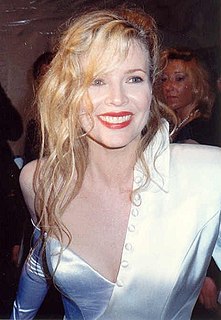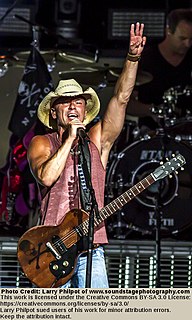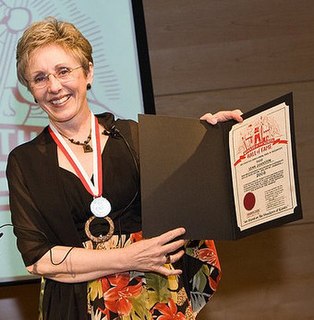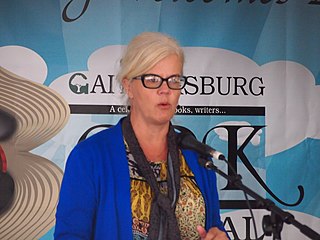A Quote by Kim Basinger
I think my mother had a lot of opportunity when she was a kid. She was a model, and she did a lot of things in her life, but she had no real ambition. I think my mother really did want a home and kids and all of that.
Related Quotes
One thing I did have under my belt was, my mother lost her mother when she was 11. She mourned her mother her whole life and made my grandmother seem present even though I never met her. I couldn't imagine how my mom could go on but she did, she took care of us, she worked two jobs and had four children. She was such a good example of how to conduct oneself in a time of grief. When I lost my husband, I tried to model myself as much as I could on her.
My mother was very passionate about life and she would do anything for us. And she had to fight alone to raise us. We never had a lot of money for extras or anything. She had to work six days a week, and then she would do breakfast, lunch and dinner. She was a super-woman! For me, I don't know how she did it with three kids.
My mother was the first African-American policewoman in Seattle - recruited, actually - and she did it for only 2 years, as she did not want to carry a gun. She worked mostly on domestic disturbances. The NAACP wanted her to do it. She did not actually have the temperament to be a cop - she was very sweet. She had a Masters in social work.
My mother wanted to be a mother. That's the only thing she wanted from the bottom of her heart. She didn't want to be the number one actress - which she was - and she didn't want to be this great legend. All she wanted to be was a mother and she did but God took her away. So I always will empathise and sympathise with women.
A lot of people say that Eleanor Roosevelt wasn't a good mother. And there are two pieces to that story. One is, when they were very young, she was not a good mother. She was an unhappy mother. She was an unhappy wife. She had never known what it was to be a good mother. She didn't have a good mother of her own. And so there's a kind of parenting that doesn't happen.
My mother hid the struggle from us children. She complained about her salary, and she had a tough time. Although she became a headmistress, she still had to do a lot of sewing. The more I think about her, the more remarkable I realise she was. And she understood straight away when I said that I wanted to write.
But what I kept wondering about is this: that first second when she felt her skirt burning, what did she think? Before she knew it was candles, did she think she'd done it herself? With the amazing turns of her hips, and the warmth of the music inside her, did she believe, for even one glorious second, that her passion had arrived?
Occasionally, on screen, Barbara [Stanwyck] had a wary, watchful quality about her that I've noticed in other people who had bad childhoods; they tend to keep an eye on life because they don't think it can be trusted. After her mother was killed by a streetcar, she had been raised in Brooklyn by her sisters, and from things she said, I believe she had been abused as a child. She had lived an entirely different life than mine, that's for sure, which is one reason I found her so fascinating. I think her early life was one reason she had such authenticity as an actress, and as a person.
I think my mother became the muse because she had everything when she was in Hollywood: she had the marriage, the success, the money, all the films she wanted to do and yet even her, she had a longing and wanted to work with a film that had meaning, something more profound. And I think that was very touching to father.
although she went home that night feeling happier than she had ever been in her short life, she did not confuse the golf course party with a good party, and she did not tell herself she had a pleasant time. it had been, she felt, a dumb event preceded by excellent invitations. what frankie did that was unusual was to imagine herself in control. the drinks, the clothes, the instructions, the food (there had been none), the location, everything. she asked herself: if i were in charge, how could i have done it better?
Just like Marilyn Monroe is a lot of girls' idol, that's how I feel about Dorothy Dandridge. And she any Marilyn were very close friends. She went through a lot, and people told her that she couldn't do certain things, but she didn't let that bother her. She said in her mind that she was going to do them and that nothing was impossible, and she did it. It was so sad... She died from drugs, and drinking as well.




































